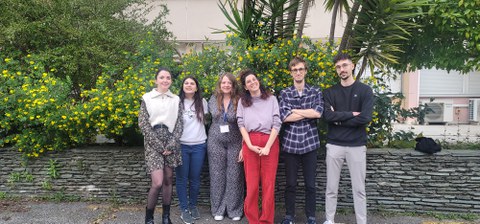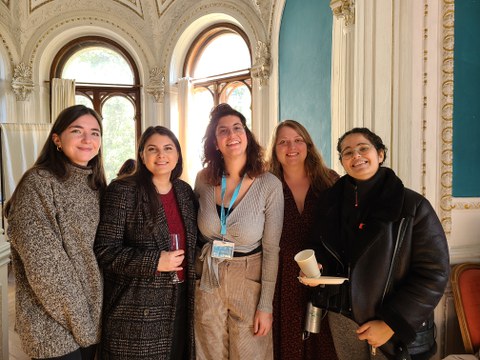30.04.2025
Report on Research Stay at Institute de Biologie Valrose in Nice - Panagiota Siatra
I am deeply grateful to the IRTG 2251:ICSMD program, part of the transCampus, for giving me the opportunity to spend 5 months at the Schedl lab, in the Institute de Biologie Valrose (iBV), in Nice. My time there has been a quite prosperous and enriching experience.
My research focus lies on investigating the mechanisms involved in the regulation of adrenocortical progenitor cells during stress adaptation and the sexually dimorphic impact of stress in the adrenal gland. To that aim, I have created single cell datasets from stressed and non-stressed adrenals from both sexes at the DRESDEN-concept Genome Center.
In the Schedl group I had the opportunity to work on these datasets with the bioinformatician of the team who was helping me on a day-to-day basis. Taking that into account, the lab provided a unique environment to benefit from this targeted skill development and fast improvement on bioinformatics. At the end of my 5-month rotation I reached a good understanding of the relevant tools that I can leverage from on my future career steps. Additionally, to that, the new insights and ideas arisen from the single cell analysis can now be transferred and validated in the wet lab.
Besides accelerating my learning process, this was also beneficial for my project since there is no better place for analyzing my data than a lab whose expertise is on the adrenal gland remodeling. The main focus of the Schedl lab lies on investigating mechanisms regulating adrenocortical cell biology in homeostasis and disease, with prominent publications in the adrenal field. More specifically, the projects of the lab are centered on questions regarding maintenance, activation and differentiation of adrenocortical progenitor cells and the impact of sex on these processes. Therefore, such an exchange was of great benefit for my research and created an important network for the endocrinology research field.
Of course, apart from the scientific advances in my project and skills, quite important was also the personal development during this process. The lab overall was quite welcoming! Starting from the first lab meetings, participation was highly encouraged, a vivid, supportive and passionate scientific environment allowing the young scientists to grow intellectually! The kind of environment that I would definitely consider for a Postdoc.
Lastly, I am gratefully thankful to the program organizer and coordinator whose effort made this exchange feasible and smooth. Adaptation to a new lab culture can be challenging, but the experience of diverse academic environments is necessary and enlightening for future career steps. Most importantly this is a truly rewarding experience that carries confidence boost, independence and academic growth! I would always encourage other students to cherish this horizon-expanding opportunity!


